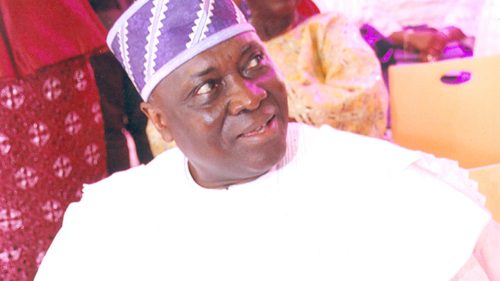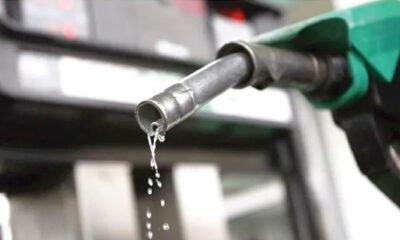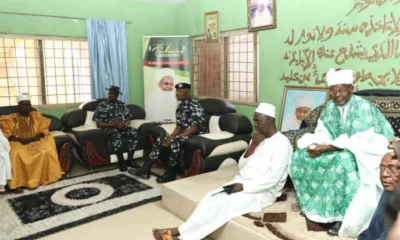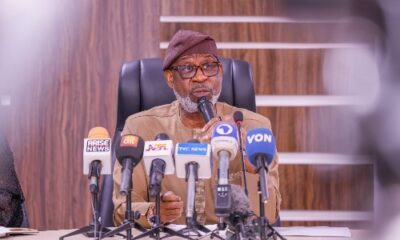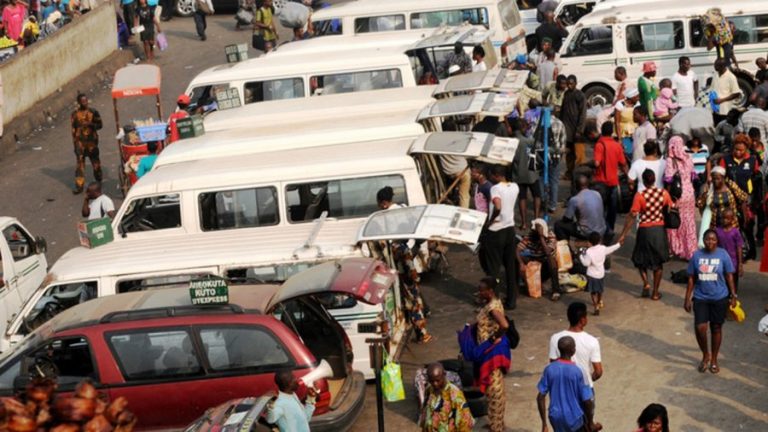As Christmas approaches, Nigerians are grappling with a record-high transport inflation rate of 30.54 percent in November 2024, according to the Consumer Price Index report by the National Bureau of Statistics.
This figure, the highest recorded this year, highlights the escalating cost of mobility for individuals and businesses alike.
Throughout 2024, transport inflation remained a pressing issue, consistently surpassing levels recorded in 2023.
In January 2024, the transport inflation rate stood at 25.92 percent, a significant rise from 21.02 percent in January 2023.
The rate stabilised somewhat during mid-year, averaging 25.63 percent in May and June, before accelerating to 27.21 percent in September, when there was an increase in fuel prices.
It reached a new peak in November, marking a year-on-year increase of 3.52 percentage points compared to 27.02 percent in November 2023.
The surge in transport costs has been driven by a combination of economic and policy-related factors.
Chief among them is the removal of fuel subsidies, implemented shortly after President Bola Tinubu assumed office in May 2023.
This policy, while aimed at stabilising public finances and spurring economic growth, led to a sharp rise in petrol and diesel prices, which are critical inputs for road and public transport.
However, there have been controversies around the removal of fuel subsidies.
Earlier reports had it that the Nigerian National Petroleum Company Limited (NNPCL) requested an additional subsidy refund of N1.19tn for July 2024, citing exchange rate differentials on Premium Motor Spirit importation and joint venture taxes.
The report revealed that exchange rate differentials stood at N4.56tn as of June 2024 (due to under-recovery on petrol imports between August 2023 and June 2024), but this figure increased to N5.31tn by July 2024.
The NNPCL attributed the rise to fluctuations in foreign exchange rates and unresolved subsidy payments from previous months.
The total figure adds to concerns over the fiscal impact of subsidy payments on the Federation Account.
Exchange rate fluctuations and the rising cost of importing PMS have continued to strain government revenues, raising questions about the sustainability of the partial subsidy framework.
The naira’s depreciation has further compounded the situation, as the cost of imported spare parts and vehicles has risen sharply, forcing transport operators to pass on these expenses to consumers.
Seasonal factors have also played a role, with the festive period typically driving increased demand for travel.
Poor road infrastructure and limited alternatives, such as rail transport, continue to add inefficiencies and costs to the transportation sector, further inflating prices.
This year’s inflationary trends reflect broader economic challenges that have intensified since Tinubu’s inauguration.
Amidst the increasing cost burden on the government for petrol under-recovery, and despite promising to bring down the price of petrol during his campaign, President Bola Tinubu increased petrol price by about 505.71 percent, from N175 in May 2023 to N1,060 in October 2024, inflicting more pain on the already impoverished Nigerians.
Observation shows that the price of petrol was increased at least five times under Tinubu, with an increase in May 2023, another in June 2023, a further increase in September 2024, and two more in October 2024.
When Tinubu took office in May 2023, transport inflation stood at 23.87 percent, according to data from the NBS.
By November 2024, it had escalated to 30.54 percent, marking a significant rise of 6.67 percentage points or 27.94 percent in 18 months.
There has also been a persistent increase in the inflation rate almost throughout Tinubu’s presidency.
In May 2023, Nigeria’s headline inflation rate stood at 22.41 percent, according to the NBS.
By November 2024, it had escalated to 34.60 percent, the highest level in nearly three decades, marking an increase of over 12 percentage points in 18 months.
The naira’s devaluation, from N769 per dollar in June 2023 to an average of N1,550 per dollar in December 2024, has significantly raised the cost of imported goods and services.
The Central Bank of Nigeria responded with aggressive monetary tightening, raising interest rates by 875 basis points in 2024.
Despite these efforts, the rising cost of living continues to strain households and businesses across the country.
Commuters face daily expenses that erode their purchasing power, while businesses, particularly small and medium enterprises, are grappling with increased logistics costs that inevitably translate to higher prices for goods and services.
Amid the rising cost of fuel and transportation, the NNPCL reduced its ex-depot price of Premium Motor Spirit, commonly referred to as petrol, to N899 per litre.
This decision, coming days after the Dangote Refinery reduced its price to N899, was confirmed by the Petroleum Products Retail Outlets Owners Association of Nigeria.
The new price indicates a reduction of N141, or 13.56 percent, from N1,040 per litre sold to customers living in the Federal Capital Territory.
PETROAN’s National Public Relations Officer, Dr Joseph Obele, noted that the price reduction by the national oil firm was a response to the competitive impact of deregulation, which had led to increased competition in the downstream sector.
He expressed optimism that PMS prices would drop further before the end of January 2025, given the global decline in crude oil prices and the naira’s recent gain against the dollar.
Also, the National President of PETROAN, Billy Harry, said the price reduction would relieve motorists and Nigerians during the holiday season.
To ease transportation costs during the Christmas and New Year celebrations, Tinubu approved free train rides nationwide from December 20, 2024, to January 5, 2025.
The Federal Government also announced a 50 percent slash in interstate transport fares for the Yuletide season to reduce travel expenses for Nigerians travelling to celebrate Christmas and New Year.
An MOU was signed between the Federal Government and key transport stakeholders, including the National Union of Road Transport Workers, the Road Transport Employers Association of Nigeria, the Association of Luxurious Bus Owners of Nigeria and God is Good Motors.
Under the arrangement, passengers departing from Abuja and Lagos (Oshodi) to various destinations across the country will pay only half the usual fare.

 BIG STORY5 days ago
BIG STORY5 days ago
 BIG STORY3 days ago
BIG STORY3 days ago
 BIG STORY4 days ago
BIG STORY4 days ago
 BIG STORY5 days ago
BIG STORY5 days ago
 BIG STORY4 days ago
BIG STORY4 days ago
 BIG STORY4 days ago
BIG STORY4 days ago
 BIG STORY4 days ago
BIG STORY4 days ago
 BIG STORY2 days ago
BIG STORY2 days ago




